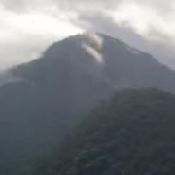Countering Illegal And Unsustainable Activities With REDD+ In Panama
The UN-REDD program recently launched a series of videos exploring REDD+ (reducing emissions from deforestation and forest degradation) in Panama, Ecuador and Paraguay. In Panama, the situation of poverty and unsustainable development and agriculture could be greatly improved with REDD activities, UN-REDD says

13 October 2014 | Between 1992 and 2008, nearly 900,000 hectares of Panama’s forest were deforested. The land was cleared for development or converted into pastureland.
But despite the increase in development and growth in the agricultural sector, almost half of Panama’s rural population live in poverty and rely on unsustainable practices for their livelihoods. They continue to burn patches of forest and plant crops.
On top of the threats of slash and burn farming and expanding development, climate change and illegal logging activities pose a risk to the forests. The threats are affecting forest health which in turn affects the services they provide, like clean water, to the local people. Many of the local people living in the forests are indigenous to the region and because of traditionally sustainable land practices, these groups have managed to preserve pieces of Panama’s forests. Majority of remaining forestland in the country lies within indigenous peoples’ territories. But the lack of clear and comprehensive land rights in Panama make enforcing laws and securing the forests’ protection difficult for indigenous tribes and acts as another risk.
While these threats are relentless, the UN-REDD programme insists REDD activities serves as a solution that could solve each challenge. Ultimately, it will provide alternative livelihoods that are sustainable empowering local communities to act as good land stewards. REDD also has the ability to generate revenue giving greater value to leaving trees standing.
“My advice is everyone involved in this project should take full advantage of this opportunity,” says Jose Angel Vargas, a local farmer.
“We must preserve the environment” says Samuel Pote, the president of a youth association in the region. “If we destroy a hectare of land for agriculture, then we must also plant trees.”
In the video below, the UN-REDD programme highlights the Panama Canal Authority’s program, which enables sustainable farming. REDD initiatives like reforestation and coffee planting have brought real change, one resident says.
“With all of these projects that have started up in our area such as planting coffee, we have been able to recover some of our sources of water that provide us with healthier and cleaner water.”
Please see our Reprint Guidelines for details on republishing our articles.

